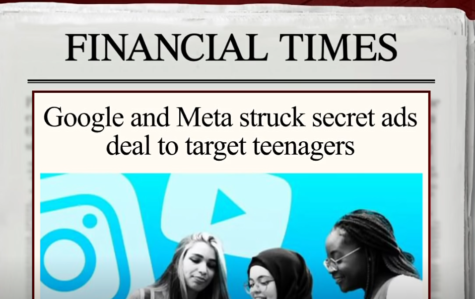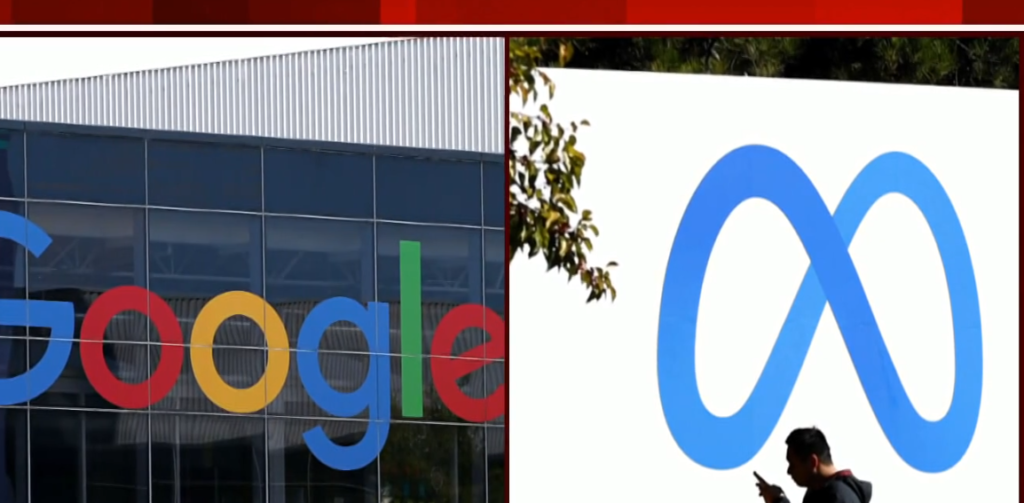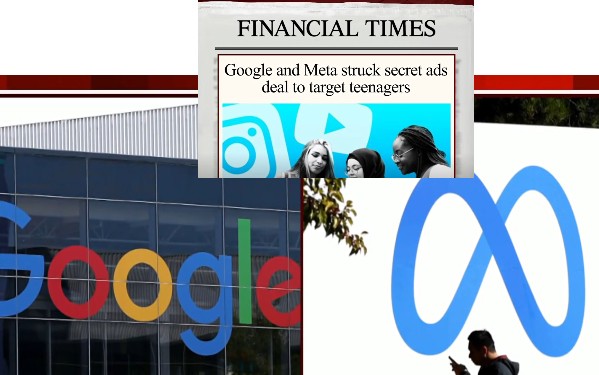The Financial Times has uncovered a startling revelation – tech giants META and Google have been engaging in a secret campaign that deliberately targeted 13 to 17-year-olds with Instagram ads on YouTube. This shocking discovery comes as a direct violation of Google’s own policies against advertising to children.
According to the report, the two companies struck a clandestine deal, driven by their desperation for advertising revenue as their financial performance has been struggling. Advertising representatives from Google seemingly decided to bypass the platform’s policies, effectively collecting cash from META to reach this vulnerable demographic.
META and Google Secret Deal: Bypassing Safeguards
The publication further explains that Google targeted ads to a subset of users labeled as “unknown” in its advertising systems, an attempt to disguise the group’s skewed demographic toward teenagers. The “unknown” category, as per Google Ads‘ help page, refers to individuals whose age, gender, parental status, or household income are supposedly unidentified, allowing advertisers to reach “a significantly wider audience” when selected.
This deceptive tactic allowed the tech giants to circumvent the safeguards put in place to protect minors from targeted advertising, all in the pursuit of boosting their bottom lines.
Ethical Concerns and Governance Questions on META and Google Secret Deal
The revelation of this secret campaign has raised serious questions about the governance and morality of these tech behemoths. Both META and Google had previously stated that they would never engage in such practices, yet here they are, blatantly disregarding their own policies and compromising the well-being of young users.

This incident serves as a stark reminder of the need for stronger oversight and accountability within the tech industry. As these companies continue to prioritize profits over ethical considerations, the public’s trust in their ability to responsibly manage and protect user data is being eroded.
The consequences of this scandal extend far beyond the immediate impact on the targeted teens. It speaks to a deeper systemic issue within the tech sector, one that requires urgent attention and reform to ensure the protection of vulnerable populations and the preservation of public trust.
Exploiting Youth: Social Media Giants’ Alarming Practices Exposed
A recent study conducted by the Harvard T.H. Chan School of Public Health has uncovered a startling revelation about the business practices of major social media platforms. According to the findings, Facebook, Instagram, Snapchat, TikTok, X (formerly Twitter), and YouTube collectively derived nearly $11 billion in advertising revenue from U.S.-based users younger than 18 in 2022.
This study, published in the journal PLOS ONE, is the first of its kind to provide comprehensive estimates of the number of youth users on these platforms and the substantial ad revenue they generate. “As concerns about youth mental health grow, more and more policymakers are trying to introduce legislation to curtail social media platform practices that may drive depression, anxiety, and disordered eating in young people,” said Bryn Austin, the study’s senior author and a professor in the Department of Social and Behavioral Sciences.

Shocking Revelations: META and Google’s Secret Campaign
Adding to the growing concerns, the Financial Times has uncovered a startling revelation – tech giants META and Google have been engaging in a secret campaign that deliberately targeted 13 to 17-year-olds with Instagram ads on YouTube. This shocking discovery comes as a direct violation of Google’s own policies against advertising to children.
According to the report, the two companies struck a clandestine deal, driven by their desperation for advertising revenue as their financial performance has been struggling. Advertising representatives from Google seemingly decided to bypass the platform’s policies, effectively collecting cash from META to reach this vulnerable demographic.
META and Google’s Secret Campaign: Bypassing Safeguards and Prioritizing Profits
The Financial Times further explains that the META and Google’s Secret Deal entails Google targeted ads to a subset of users labeled as “unknown” in its advertising systems, an attempt to disguise the group’s skewed demographic toward teenagers. The “unknown” category, as per Google Ads’ help page, refers to individuals whose age, gender, parental status, or household income are supposedly unidentified, allowing advertisers to reach “a significantly wider audience” when selected.
This deceptive tactic allowed the tech giants to circumvent the safeguards put in place to protect minors from targeted advertising, all in the pursuit of boosting their bottom lines. Despite the mounting concerns about the negative impact of social media on youth mental health, these platforms have shown a strong financial incentive to continue exploiting this vulnerable demographic, prioritizing profits over the well-being of young users.














